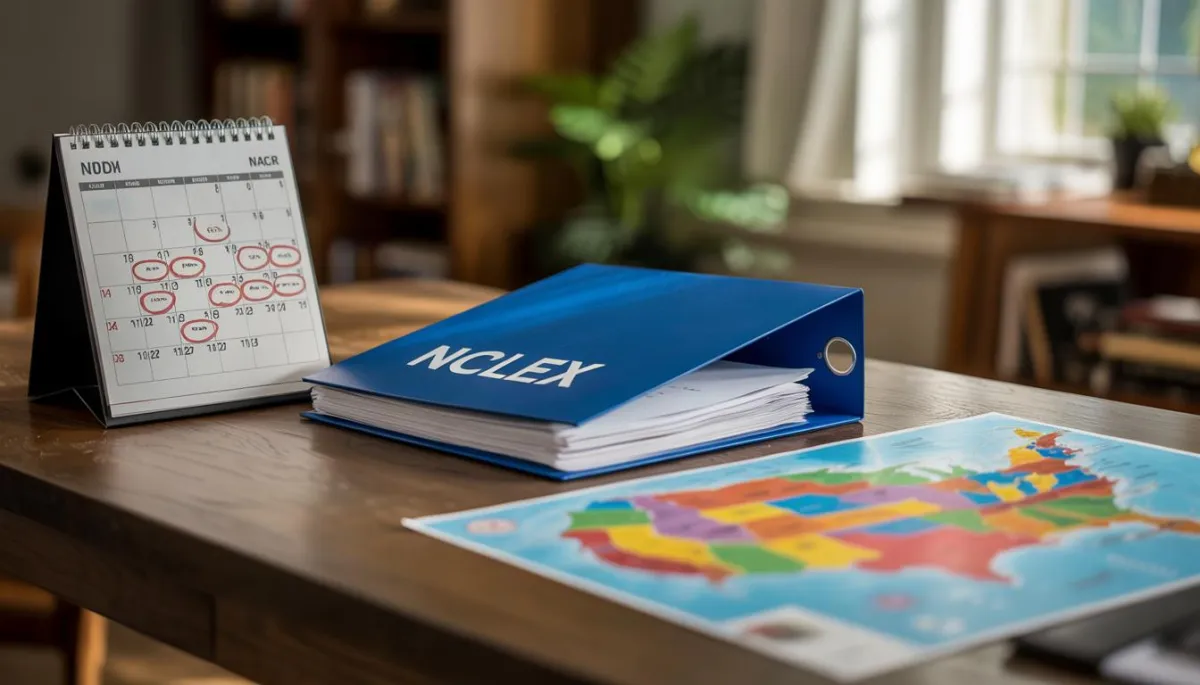
How NEAC Transformed the Landscape of NCLEX Applications and International Nursing Licensure
Since the creation of NCLEX, the process of becoming a US Registered Nurse (USRN) as an internationally educated nurse has been characterized by complexity, ambiguity, and numerous systemic barriers. The intricate nature of state-specific requirements, varying documentation standards, and extensive credential verification procedures made the pathway to licensure in the United States arduous and, for many, seemingly unattainable.
The establishment of the NEAC Medical Exams Center marked a pivotal turning point in this narrative. By providing specialized support and strategic guidance, NEAC fundamentally transformed the approach to NCLEX exam applications and international nursing licensure, significantly improving accessibility and efficiency for nurses worldwide.
Historical context: Challenges in the pre-NEAC era
Prior to the emergence of NEAC, international nurses seeking to practice in the United States faced numerous obstacles, including:
Disparate requirements across state boards of nursing
Complex document authentication and verification processes
Stringent credential evaluation procedures
Inconsistent policies regarding language proficiency and clinical equivalency
Limited access to accurate, up-to-date information on evolving regulations
These challenges often resulted in prolonged application timelines, with some candidates experiencing delays of 12 to 24 months or even longer. In many cases, these extended delays led to financial strain, professional stagnation, and loss of motivation among highly qualified nursing professionals.
The visionary behind NEAC: Dr. Elbe Akman
The transformative shift in the international nursing licensure landscape can be attributed to the visionary leadership of Dr. Elbe Akman, founder of NEAC.
In the early 2000s, Dr. Akman was deeply involved in international nurse recruitment, particularly in the Philippines — one of the world's largest sources of foreign-educated nurses. During this time, he observed firsthand the severe inefficiencies and confusion surrounding the NCLEX application process. Nurses were frequently misinformed, exploited, left without guidance, and forced to navigate a highly fragmented, decentralized system on their own.
Motivated by this systemic challenge, Dr. Akman, while pursuing a doctoral degree, during which he authored a dissertation focused on centralizing and streamlining the NCLEX application process for international nurses. His research emphasized that without a unified, coordinated approach, global nursing talent would continue to be underutilized, and healthcare systems abroad would face persistent staffing gaps.
Inspired by his findings and determined to create meaningful change, Dr. Akman founded NEAC in 2004 which was later incorporated in 2007. His goal was to implement the very solutions he proposed in his dissertation, thus bridging the gap between theory and practices
The NEAC intervention: Centralization and Professionalization
NEAC’s establishment addressed these inefficiencies through a centralized, holistic approach. Key contributions include:
Personalized state board guidance: Based on Dr. Akman’s research, NEAC developed tailored frameworks to evaluate candidates' backgrounds and recommend optimal state boards for licensure, reducing missteps and reapplications.
Comprehensive document management: NEAC ensured that all required documents, including transcripts, credentials, and verifications, were accurately prepared and submitted in compliance with each state's standards.
Centralized communication channels: By directly coordinating with nursing schools, credential evaluation agencies, and state boards, NEAC eliminated fragmented communication and minimized administrative delays.
Continuous policy monitoring: NEAC, following Dr. Akman’s principle of adaptive governance, actively monitored and responded to evolving state regulations, ensuring candidates always received up-to-date guidance.
Impact on processing timelines and candidate success
The systematic, centralized approach championed by NEAC led to a significant reduction in application timelines. While traditional self-managed applications often spanned 6 to 12 months or longer, NEAC-assisted applications frequently conclude within 3 to 6 months, depending on the individual’s circumstances and chosen state board.
This acceleration not only facilitated quicker transitions into the US nursing workforce but also empowered candidates to focus on essential clinical preparation and NCLEX exam readiness.
Global empowerment and expanded access
Dr. Akman’s vision extended beyond administrative efficiency; it centered on global nurse empowerment. By streamlining licensure processes, NEAC enabled thousands of nurses from countries such as the Philippines, India, the Middle East, and various parts of Africa and Latin America to realize their professional aspirations abroad.
Through NEAC, international nurses could redirect their energies from bureaucratic challenges to enhancing their clinical skills and preparing to deliver high-quality patient care in diverse healthcare settings.
Changing perceptions: Licensing as strategic professional development
NEAC, under Dr. Akman’s leadership, fundamentally reshaped the narrative surrounding licensing assistance. Previously perceived as a peripheral administrative service, licensing support became recognized as a critical component of professional development and strategic career planning.
By reinforcing that licensure is not merely paperwork but rather the foundation of a nurse’s global mobility and professional identity, NEAC set a new standard in international healthcare recruitment.
Conclusion: A transformative legacy
Through the innovative vision of Dr. Elbe Akman, NEAC has irrevocably changed the history of NCLEX applications and international nursing licensure. By applying academic insights into real-world practice, Dr. Akman succeeded in transforming a fragmented, error-prone system into a streamlined, supportive pathway for global nursing talent.
NEAC’s legacy is not simply operational improvement; it represents a profound contribution to the global healthcare workforce, fostering equitable opportunities for nurses and strengthening patient care worldwide. It was a revolutionary initiative.
Further inquiries
For academic institutions, policymakers, or healthcare organizations interested in examining NEAC’s centralized model and its global impact in more detail, comprehensive case studies and Dr. Akman’s dissertation findings are available upon request.
Visitwww.medexamcenter.comfor NCLEX exam applications and other medical licensing assistance
